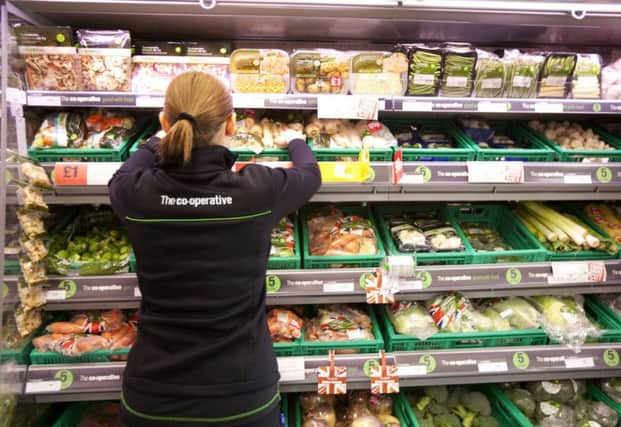Longevity of co-op firms prompts call for sector's growth


Publication of the UK Co-operative Economy 2018 study by Co-operatives UK comes ahead of a celebration of co-op businesses in Scotland – and how they make a positive difference to people’s lives – at the Scottish Parliament’s Cross-Party Group on Co-Operatives. The event tomorrow is part of Co-Operatives Fortnight.
Co-operatives UK said that after 12 months, 94 per cent of all Scottish business start-ups remain in existence, but this reduces to 63 per cent after year three before dropping to 46 per cent by the end of the fifth year.
Advertisement
Hide AdAdvertisement
Hide AdBut Scottish co-operatives were found to be far more resilient with a survival rate of 97 per cent, 71 per cent and 65 per cent after the same periods of existence respectively.
There are 573 co-ops north of the Border with a combined turnover of some £2.4 billion, and membership levels at 1.2 million. Greencity Wholefoods, a workers’ co-operative in Glasgow, was cited as a successful example.
Looking at the UK as a whole, there are 7,226 independent co-ops. These range from well-known retailers like John Lewis, which tops the rankings in terms of turnover at more than £10 billion followed by the Co-operative Group, to small farmer-owned businesses, community sports clubs and web developers.
Collectively they turned over a five-year high of £36.1bn in 2017 while a record 13 million people now own and have a say in how the UK’s co-ops operate.
Ed Mayo, secretary general of Co-operatives UK, said: “We know co-operatives are resilient and sustainable businesses and these incredible stats reinforce that view. It begs the question ‘why are there not more co-operatives in Scotland?’”
Citing the success of the co-operative business model, whereby businesses are owned and controlled by their members, he added that it is “precisely what the economy needs” in the current climate. “We want to see the co-op business model promoted by government and professional services, in the education sector and even more vocally by co-operatives themselves.
“If we want to see a more successful Scottish economy, where people have a say in decision-making and receive a fair share then we need more co-operatives.”
Sarah Deas, director at Co-operative Development Scotland, the arm of Scottish Enterprise that supports the development of co-operative and employee-owned enterprises across Scotland, also commented. “The report clearly shows how resilient co-operatives are and that they are very much a viable business model. We can help with a range of services including how to structure the company, financing and developing member participation.”